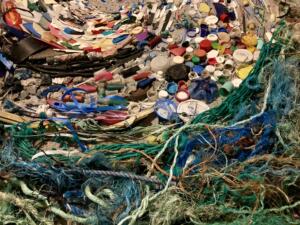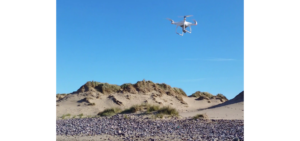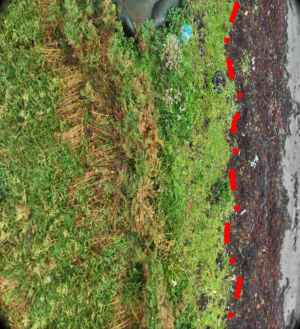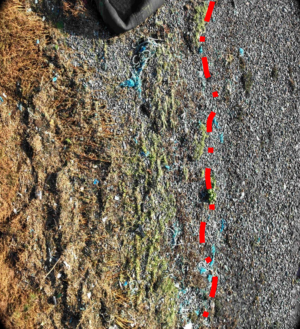
Grants
Tackling environmental threats
Marine Litter Island Drone Survey
£7,500 awarded
Grantee: Scottish Island Federation
Duration: 7 months (September 2024 – March 2025)
Background
Marine litter surveys are crucial for building the evidence base for policy change. Until now, surveys have predominantly taken the form of volunteer surveys, through the Citizen Science initiative MCS Beachwatch.
While undoubtedly important in bridging the gap between local communities and national policy, beach surveys are time and labour intensive, relying on the tireless efforts of local volunteers to combine surveying with beach cleans.
Drones have the potential to revolutionise marine litter surveys. By automating data collection through Artificial Intelligence (Ai), the technology could capture more data, and strengthen the evidence base to drive policy change. Simultaneously, this would allow volunteers that currently undertake beach surveys to focus on marine litter removal, resulting in more litter removed from the environment.

One of the marine litter drones in action. Photo courtesy of SIF.
Marine Litter on Scottish Islands
The Scottish Islands Federation (SIF), specifically their Marine Litter Working Group, have been instrumental in increasing marine litter data collection across the Scottish Islands. In 2023, through collaboration with the Marine Conservation Society (MCS) and funding from HIEF and others, the number of annual surveys increased from 67 to 156 (more here).
However, this effort requires significant volunteer time and effort. The high risk of volunteer fatigue drove SIF to explore alternative means of continued data collection, such as the use of drones. This HIEF grant, awarded to SIF in June 2024, enabled them to pilot this emerging technology over the course of a year.
The Project
The purchase of the DJI Mavic 3 Enterprise drone and auxiliary equipment, along with appropriate licences and insurance, equipped the SIF Marine Litter Working Group with the specialised technology to collect data.
Over the winter of 2024/25, the project collected data on four Scottish islands, successfully capturing eight sets of aerial imagery and accompanying marine litter counts. The resulting aerial imagery is impactful in a number of areas:
Highlighting limitations with the current methodology
Through the use of repeat surveys, the drone illustrated how litter accumulated and mobilised over time. For example, images taken of a stretch of beach before and after Storm Ashley showed how litter had been washed or blown inland, beyond the ‘beach boundary’ . This insight highlighted a limitation with the Government-adopted ‘OSPAR methodology’ which fails to capture litter accumulation beyond the shore boundary, particularly in exposed sections of coastline.
Engaging communities and volunteers
Images form valuable tools for demonstrating not only the extent of the problem, but also the visible impact of volunteer clean-ups.
Research partnerships
A project is underway at The Centre for Environment, Fisheries and Aquaculture (CEFAS), in Suffolk, to train an algorithm to identify marine litter from drone imagery. Imagery collected by SIF will be integrated into the CEFAS algorithm, ensuring it will accurately be able collect data on island specific marine litter (e.g. aquaculture and fishing gear) when it becomes operational. The partnership is an exemplar of how community-led data collection can complement larger-scale scientific research.
When this becomes operational, marine litter data collection will become more automated and less volunteer dependent, building capacity within community groups to focus on litter removal.
Project Legacy
The drone will continue to collect aerial imagery, building capacity of SIF MLWG and partners while continuing to contribute to marine litter technological innovation.
The result of these innovations will be a more accurate picture of marine litter trends, informing policy changes which will address pollution at source.


Images from October 2024, taken before and after Strom Ashley, reveal the impact of extreme weather on marine litter distribution, with much of the litter blown behind the beach into grass and rushes.
